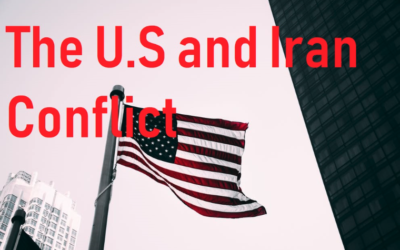
Geopolitical conflicts can have a substantial impact on commerce, investment, and the availability of resources, among other areas of the global economy. The effects are frequently intricate and varied, affecting growth and stability in the economy in several areas.
Geopolitical conflicts may obstruct trade routes, which would have an impact on the flow of goods and services between nations. For companies engaged in international trade, this disruption may mean higher expenses, longer lead times, and more uncertainty. Also, uncertainty in the financial markets brought on by political unrest can influence investor confidence and cause swings in stock and currency prices. Capital flows and investment decisions may WTO | The Impact of Geopolitical Conflicts on Trade, Growth, and Innovation be impacted by investors’ growing risk aversion.
Energy costs can fluctuate due to geopolitical conflicts in resource-rich regions, especially those that produce oil. Global oil markets can be impacted by uncertainty regarding the reliability of energy supply, which can have an impact on both oil-importing and oil-exporting nations.
For example, in 1990-1991 during the Gulf War, the price of oil and the world economy were significantly impacted by the war. Oil production was disrupted by Iraq’s invasion of Kuwait, which raised oil prices . This led to a global economic downturn and had consequences for countries that buy oil.

Geopolitical conflicts can have a substantial impact on commerce, investment, and the availability of resources, among other areas of the global economy. The effects are frequently intricate and varied, affecting growth and stability in the economy in several areas.
Trade routes that have been created may be disrupted by geopolitical wars, which would impact the movement of products and services between nations. For companies engaged in international trade, this disruption may mean higher expenses, longer lead times, and more uncertainty. Also, uncertainty in the financial markets brought on by political unrest can influence investor confidence and cause swings in stock and currency prices. Capital flows and investment decisions may WTO | The Impact of Geopolitical Conflicts on Trade, Growth, and Innovation be impacted by investors’ growing risk aversion.
Energy costs can fluctuate due to geopolitical conflicts in resource-rich regions, especially those that produce oil. Global oil markets can be impacted by uncertainty regarding the reliability of energy supply, which can have an impact on both oil-importing and oil-exporting nations.
For example, in 1990–1991, during the Gulf War, the price of oil and the world economy were significantly impacted by the war. Oil production was disrupted by Iraq’s invasion of Kuwait, which raised oil prices . This led to a global economic downturn and had consequences for countries that buy oil.
Many businesses use global supply networks, and geopolitical unrest can hinder the production and delivery of goods. This interruption may cause shortages, higher expenses, and maybe a review of firms’ supply chain plans.
Furthermore, geopolitical conflicts have the potential to negatively affect economic growth by creating an unattractive investment climate that Implications-of-the-War-in-Ukraine-for-the-Global-Economy.pdf (worldbank.org) discourages foreign direct investment (FDI). Conflict-ridden nations may see a decrease in their ability to borrow money and a rise in borrowing costs.
Beyond their effects on the economy, geopolitical wars frequently result in humanitarian crises that have a high societal and human cost . Population displacement and refugee crises can put a burden on available resources and exacerbate long-term economic difficulties in the impacted areas.
Specifically, this is the case of the Syrian Civil War (2011). There are economic ramifications for the area and the world from the Syrian conflict . Population relocation, infrastructural damage, and economic upheavals have impacted nearby nations and aggravated refugee crises.
In response to geopolitical conflicts, governments may implement fiscal stimulus, trade sanctions, or monetary policy adjustments that have effects on their economies. The reactions to these policies may have a significant impact on the global economic scene.

Global supply networks are used by many businesses, and geopolitical unrest can impede the manufacture and delivery of commodities. This interruption may cause shortages, higher expenses, and maybe a review of firms’ supply chain plans.
Furthermore, geopolitical conflicts have the potential to negatively affect economic growth by creating an unattractive investment climate that Implications-of-the-War-in-Ukraine-for-the-Global-Economy.pdf (worldbank.org) discourages foreign direct investment (FDI). Conflict-ridden nations may see a decrease in their ability to borrow money and a rise in borrowing costs.
Beyond their effects on the economy, geopolitical wars frequently result in humanitarian crises that have a high societal and human cost. Population displacement and refugee crises can put a burden on available resources and exacerbate long-term economic difficulties in the impacted areas.

Specifically, this is in the case of the Syrian Civil War (2011). There are economic ramifications for the area and the world from the Syrian conflict . Population relocation, infrastructural damage, and economic upheavals have impacted nearby nations and aggravated refugee crises.
In response to geopolitical conflicts, governments may implement fiscal stimulus, trade sanctions, or monetary policy adjustments that have effects on their economies. The international economic scene may be significantly impacted by these policy reactions.


